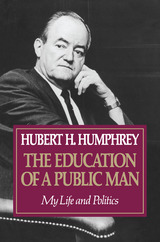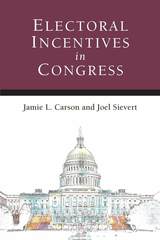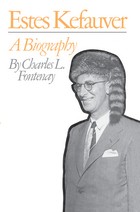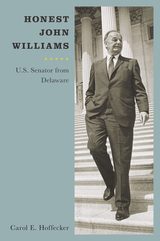5 start with E start with E

Runner-up, Violet Crown Award, Writer's League of Texas, 2008
Renowned for his "brilliant legislative mind" and political oratory—as well as for bicycling to Congress in a rumpled white linen suit and bow tie—U.S. Congressman Bob Eckhardt was a force to reckon with in Texas and national politics from the 1940s until 1980. A liberal Democrat who successfully championed progressive causes, from workers' rights to consumer protection to environmental preservation and energy conservation, Eckhardt won the respect of opponents as well as allies. Columnist Jack Anderson praised him as one of the most effective members of Congress, where Eckhardt was a national leader and mentor to younger congressmen such as Al Gore.
In this biography of Robert Christian Eckhardt (1913-2001), Gary A. Keith tells the story of Eckhardt's colorful life and career within the context of the changing political landscape of Texas and the rise of the New Right and the two-party state. He begins with Eckhardt's German-American family heritage and then traces his progression from labor lawyer, political organizer, and cofounder of the progressive Texas Observer magazine to Texas state legislator and U.S. congressman. Keith describes many of Eckhardt's legislative battles and victories, including the passage of the Open Beaches Act and the creation of the Big Thicket National Preserve, the struggle to limit presidential war-making ability through the War Powers Act, and the hard fight to shape President Carter's energy policy, as well as Eckhardt's work in Texas to tax the oil and gas industry.
The only thorough recounting of the life of a memorable, important, and flamboyant man, Eckhardt also recalls the last great era of progressive politics in the twentieth century and the key players who strove to make Texas and the United States a more just, inclusive society.

A candid look into the private and political life of Minnesota's native son.


Ernest Gruening is perhaps best known for his vehement fight against U.S. military involvement in Vietnam, where he set himself apart by casting one of two votes against the Tonkin Gulf Resolution in 1964. However, as Robert Johnson shows in this political biography, it's Gruening's sixty-year public career in its entirety that provides an opportunity for historians to explore continuity and change in dissenting thought, on both domestic and international affairs, in twentieth-century America.
Gruening's outlook on domestic affairs took shape in the intellectual milieu of Progressive-era Boston, where he first devoted attention to foreign affairs in crusades against aggressive U.S. policies toward Haiti and Mexico. In the late 1920s, he was appointed editor of a reform newspaper in Portland, Maine, and moved from there to The Nation. By the early 1930s he had built a national reputation as an expert on Latin American affairs, prompting Franklin Roosevelt to appoint him chief U.S. policymaker for Puerto Rico. In 1939, Roosevelt named Gruening governor of Alaska, where for fourteen years he played a key role in the political development of the territory. In 1958 Alaskan voters elected him to the U.S. Senate, where he articulated a dissenting outlook in inter-American affairs, foreign aid policy, and the relationship between the federal government, the economy, and the issue of monopoly.
Throughout his life, Gruening struggled to reconcile his ideological perspective, which drew on dissenting ideas long embedded in American history, with a desire for political effectiveness.

But the product is a good one. Fontenay takes us from Kefauver's childhood in Tennessee, to his law career, to his service in the US House, to his campaign for the Senate, his pursuit of the presidency in the 1950s, and his legislative battles up to his early death in 1963. In doing so, Fortenay shows us the many paradoxes of Kefauver. Kefauver was a hard working, not particularly charismatic legislator. But he was also a great retail politician, embarrassing Harry Truman and Adlai Stevenson in multiple primaries throughout the 1950s. He was a something of a liberal, but he also looked down at women and was a swing vote on civil rights (To be fair, as a southern senator being a swing vote in civil rights is better than most of his colleagues). Kefauver maintained a close family life despite his active political career, but cheated on his wife fairly openly. Kefauver was ethical and principled (except when it came to monogamy), refusing to cut political deals to win the presidential nomination or keep gifts, but he had a constellation of wealthy friends who paid his personal expenses and bought stock based on the findings of a Congressional investigation.
Any politician, really any person, studied so closely shows some wrinkles. Kefauver is no different. But overall, Kefauver was a hard worker, progressive particularly for his state, and helped democratize the nominating process. In those respects, he is a model for modern senators.
A few nitpicks about the book. First, Fontenay writes that a Congressman Reece died and was replaced by his wife by appointment. Reece's wife won a special election because there are no appointments to fill House vacancies. Second, Fontenay short changes some of Kefauver's policy battles, including presidential succession which is of particular interest to me.
That aside, Fontenay writes a great book. His sources are varied from many personal interviews, to Kefauver's letters, to the biographies of other senators. He manages to balance the many names and personalities and does a particularly good job of explaining the political convention intrigue of the 1950s.
I highly recommend this book to students of politics, government, and history. It fills a void in the literature with the tale of a significant senator of the mid-20th century.
READERS
Browse our collection.
PUBLISHERS
See BiblioVault's publisher services.
STUDENT SERVICES
Files for college accessibility offices.
UChicago Accessibility Resources
home | accessibility | search | about | contact us
BiblioVault ® 2001 - 2024
The University of Chicago Press









